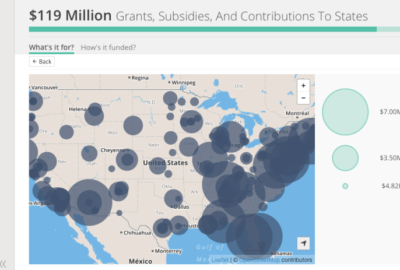
Retiring? Like your teeth? Read on …
If you really like your teeth and you plan to retire from your government job some day, Senior Correspondent Mike Causey has some advice for you and your choppers.
Back in day, when America was a less sensitive place, a so-called “comedian” had the gall to define the term “mixed emotions” as: “Seeing your mother-in-law drive off a cliff in your new Porsche.”
The brute.
Horrible. Disgusting. Not funny. A “joke” that has no place in the 21st century. And yet …
There are certain things that truly produce mixed emotions. Seeing your kids graduate. Or get married/divorced. Moving to another neighborhood or city. Or retiring. Which many, of not most federal workers, eventually do.
Which is where your teeth come in.
Retirement may be something you’ve looked forward too since the day you started working. In government retirement can be both rewarding and (because there are so many decisions, bells and whistled) confusing. Some people retire the first day they are eligible, some wait as long as possible.
The good news for federal and postal retirees is that their annuities are indexed to inflation. If it goes up, so do benefits. If it goes down benefits remain the same. Retirees also pay the same health insurance premiums as young, healthy workers in the same plans. And their benefits don’t change just because they are getting older and, in many cases, less healthy. Retirees will also be eligible for the new self-plus-one option next year, although many will find it is little or no cheaper than a family plan, or two self only plans.
Whether you are looking forward to retirement or are being pressured by your agency to leave, it comes to most. And when it does, lots of people have lots of questions. The open enrollment period, when feds and retirees pick their 2016 health plans and optional dental and vision protection programs, begins in a couple of weeks. Open season is always important, especially for people who are about to retire. Like the Virginia-based reader who’s leaving in December — and he wants to keep his teeth. So can he? Here’s his question, then the answer:
“Tens of thousands of us will be retiring in December and January,” he said. “So can we keep our optional dental policies when we are no longer getting a paycheck? Will they deduct the premiums from our monthly annuity.”
Short answer: Yes and yes. People can take their dental (and vision) policies with them into retirement. And they can pay their premiums via payroll (or annuity) deductions. David Snell of the National Active and Retired Federal Employees Association explained it this way:
“When your retirement package is forwarded to OPM it will indicate your federal dental (and vision) insurance coverage and if you are eligible to continue that coverage into retirement. You are eligible if:
“Your FEDVIP enrollment will continue into retirement if you retire on an immediate annuity or for disability under CSRS, FERS or another retirement system for employees of the Government, regardless of the length of time you had FEDVIP coverage as an employee. There is no requirement to have coverage for 5 years of service prior to retirement in order to continue coverage into retirement, as there is with the FEHB Program. Benefeds administers the program.”
As OPM explains, “You should not need to take any action with your FEDVIP enrollment(s) when you retire. Most payroll offices inform BENEFEDS when an employee retires. You will receive a letter informing you we have been notified of your retirement and that your FEDVIP plan premiums will be deducted from your annuity once adjudication has been finalized. If you do not receive this letter soon after your last pay period before retirement, please contact BENEFEDS Customer Service.
During adjudication, you may receive direct bills for your premium. Please note that FEDVIP premiums cannot be withheld from your interim retirement annuity. You need to pay premiums directly during this time in order to keep your coverage active. If this is the case, you will be sent a letter informing you about the direct bill process.”
So, chew on that one!
Nearly Useless Factoid
By Michael O’Connell
The origin of the word “deadline” can be traced back to the Confederate-run Andersonville, Georgia, prison camp during the American Civil War. The deadline was an imaginary line that ran at a distance of 20 feet from the stockade where prisoners were kept. If a prisoner crossed the line, he would be shot.
Source: Today I Found Out
Copyright © 2025 Federal News Network. All rights reserved. This website is not intended for users located within the European Economic Area.
Mike Causey is senior correspondent for Federal News Network and writes his daily Federal Report column on federal employees’ pay, benefits and retirement.
Follow @mcauseyWFED




